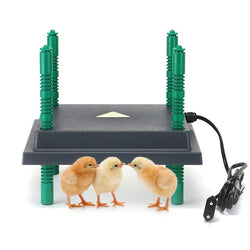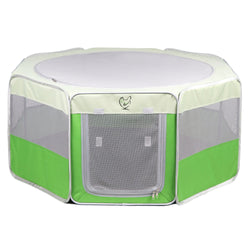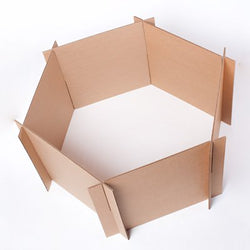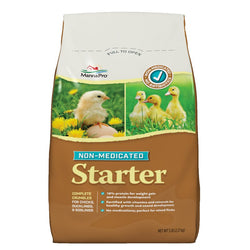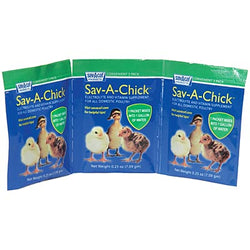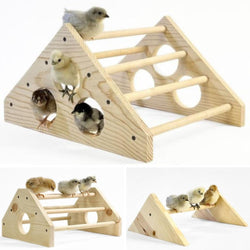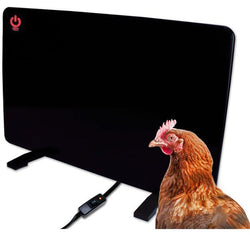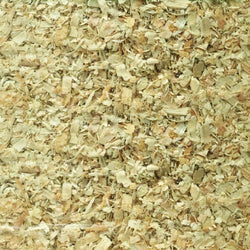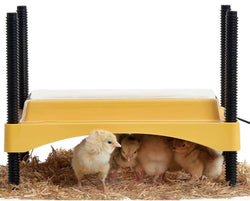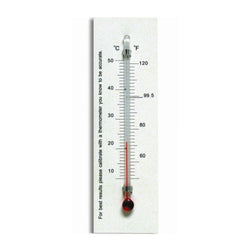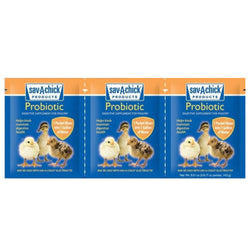All about Encephalomalacia disease
Back to blog
Unlike most diseases, Encephalomalacia (try saying that three times quickly!), is not caused by a virus, bacterium, or fungus. Also known as "crazy chick disease," it is caused by a Vitamin E deficiency which results in neurological damage over time. You can keep this from ever happening to your flock by making sure they have free choice access to nutritionally-complete feeds appropriate to their age. Read on to find out more:
Encephalomalacia Also called
Crazy chick disease
Prevalence
Rare, particularly so in backyard flocks with access to pasture.
Signs
General signs -
Sudden loss of balance, circling, head shaking or tremors, eventually convulsions, paralysis, death
Cardinal or diagnostic signs -
Necropsy shows deteriorated brain
Cause/s
Nutritional deficiency of Vitamin E.
Communicability
Not communicable, but many members of a flock may share this problem if they're on the same deficient feed.
Communicability to humans
No.
Incubation period
None, but as a deficiency, it takes some time to develop.
Latent
No
Endemic
No
Home treatment and/or prevention
Prevention: Provide a good, fresh, nutritionally balanced feed for your flock. Don't make the mistake of offering something like scratch only, or kitchen scraps only.
Treatment: Supplement with Vitamin E and Selenium (which helps Vitamin E metabolism).
Veterinary care
A veterinarian can diagnose this problem and suggest good supplements.
Recovery
In birds that haven't sustained permanent neurological damage, full recovery with supplementation and a balanced diet.
Other conditions, illnesses and/or diseases with similar signs:
Early stages may be mistaken for other neurological illnesses such as listeriosis or polyneuritis..
Also consider browsing through this list of other chicken illnesses with neurological symptoms.
Encephalomalacia Also called
Crazy chick disease
Prevalence
Rare, particularly so in backyard flocks with access to pasture.
Signs
General signs -
Sudden loss of balance, circling, head shaking or tremors, eventually convulsions, paralysis, death
Cardinal or diagnostic signs -
Necropsy shows deteriorated brain
Cause/s
Nutritional deficiency of Vitamin E.
Communicability
Not communicable, but many members of a flock may share this problem if they're on the same deficient feed.
Communicability to humans
No.
Incubation period
None, but as a deficiency, it takes some time to develop.
Latent
No
Endemic
No
Home treatment and/or prevention
Prevention: Provide a good, fresh, nutritionally balanced feed for your flock. Don't make the mistake of offering something like scratch only, or kitchen scraps only.
Treatment: Supplement with Vitamin E and Selenium (which helps Vitamin E metabolism).
Veterinary care
A veterinarian can diagnose this problem and suggest good supplements.
Recovery
In birds that haven't sustained permanent neurological damage, full recovery with supplementation and a balanced diet.
Other conditions, illnesses and/or diseases with similar signs:
Early stages may be mistaken for other neurological illnesses such as listeriosis or polyneuritis..
Also consider browsing through this list of other chicken illnesses with neurological symptoms.
